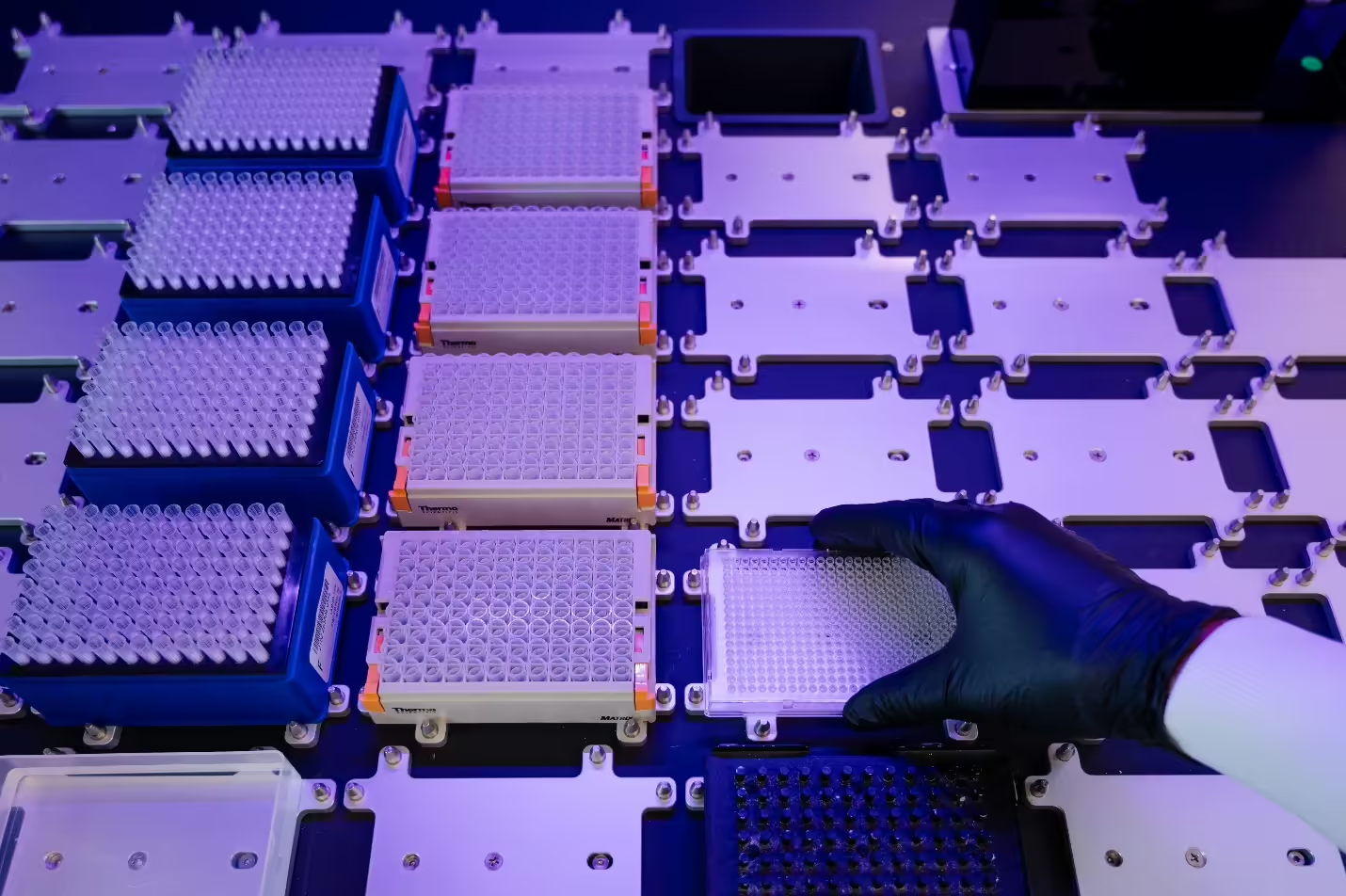Whole genome sequencing (WGS) is a powerful platform for discovery, screening, and diagnosis. Our human genome sequencing process builds on almost 30 years of institutional expertise dating back to the first human genome project. We have now sequenced over 675,000 genomes and over 1 million exomes. Depending on the application, we can sequence genomes at 0.1X coverage for cancer tumor fraction estimation, all the way up to 160X for somatic mosaicism detection. We sequence genomes with long read platforms and with short read platforms. We also run low pass genomes spiked with deeper exome libraries (blended genome-exome) as a cost effective assay for risk screening.

Today we are excited to announce that the subset of our genome assays that are clinically validated WGS laboratory developed tests (LDTs) are now approved by the New York State Clinical Laboratory Evaluation Program (NYS CLEP). These LDTs run on the Illumina NovaSeq X Plus and use DRAGEN software for variant calling. NYS regulatory approval for this product spans its use as a technical genome (data and variants delivered only) and as an interpreted genome where we can deliver clinical reports for gene panels, secondary findings, or perform a whole genome analysis in a phenotype-driven approach using the Fabric Genomics Enterprise platform. For those who may not be familiar with the space: NYS approval is a big deal. Known for its exacting standards, approval from NYS has even been cited by FDA as a viable alternative to the IVD pathway for molecular assays in some scenarios.
In accordance with our mission, and through our awards and partnerships, we are driving forward the application of WGS in population programs (e.g. the NIH All of Us Research Program), newborn screening (with Nurture Genomics), NICU diagnostics (with Fabric Genomics and Intermountain Health), childhood developmental delays (collaboration with Quest Diagnostics to understand utility of WGS to detect chromosomal abnormalities), disease risk estimation (with MyOme, Southern Research, Boston VA and others using the blended genome-exome), common disease research (with the Stanley Center at Broad), rare disease research (Simons Foundation, Boston Children’s Hospital, GREGoR consortium and others), and cancer (NCI, DFCI, Gabriella Miller Kids First Pediatric Research Program, and others).
Kudos to the entire team at BCL who worked so hard on this application and review process. It was a big task and the team really stepped up. We are so proud of what we’ve built here and are delighted to bring this additional layer of regulatory approval and stamp of quality to our partners.